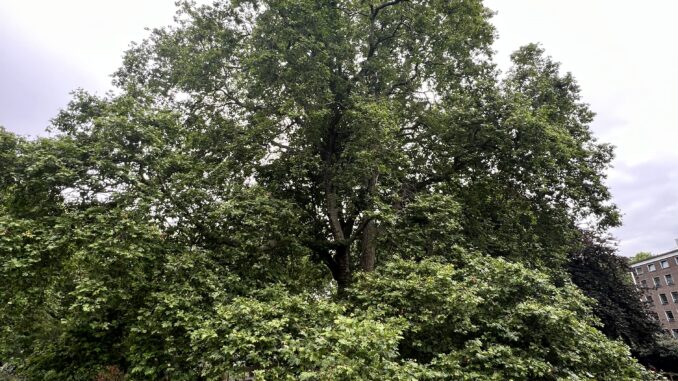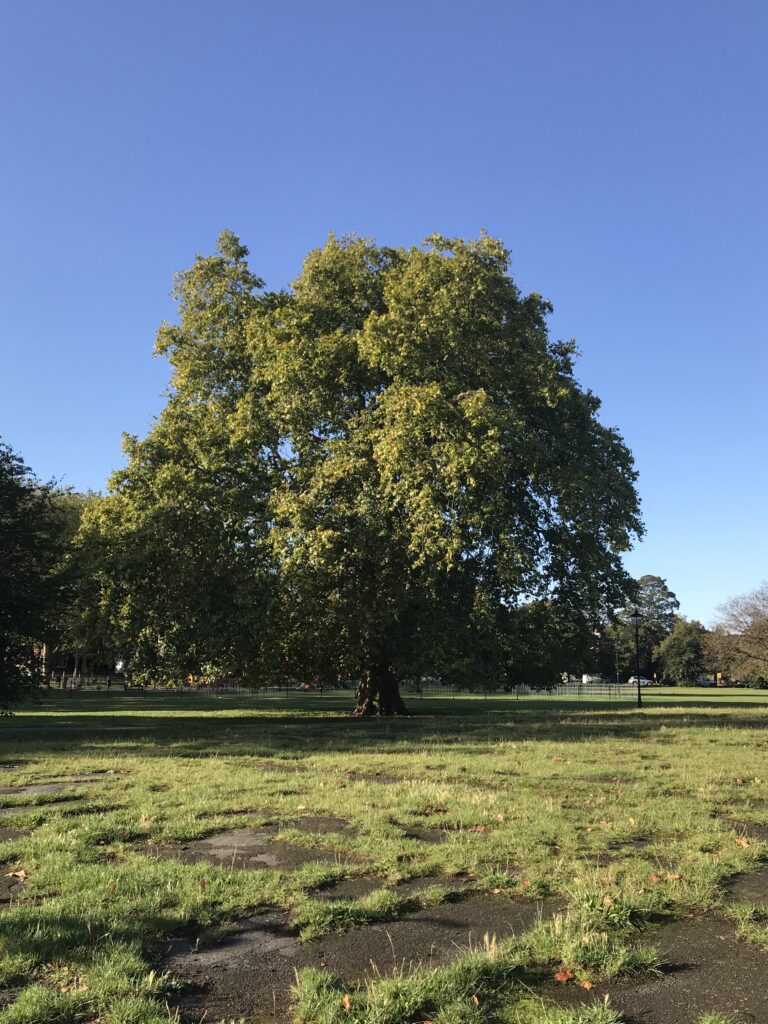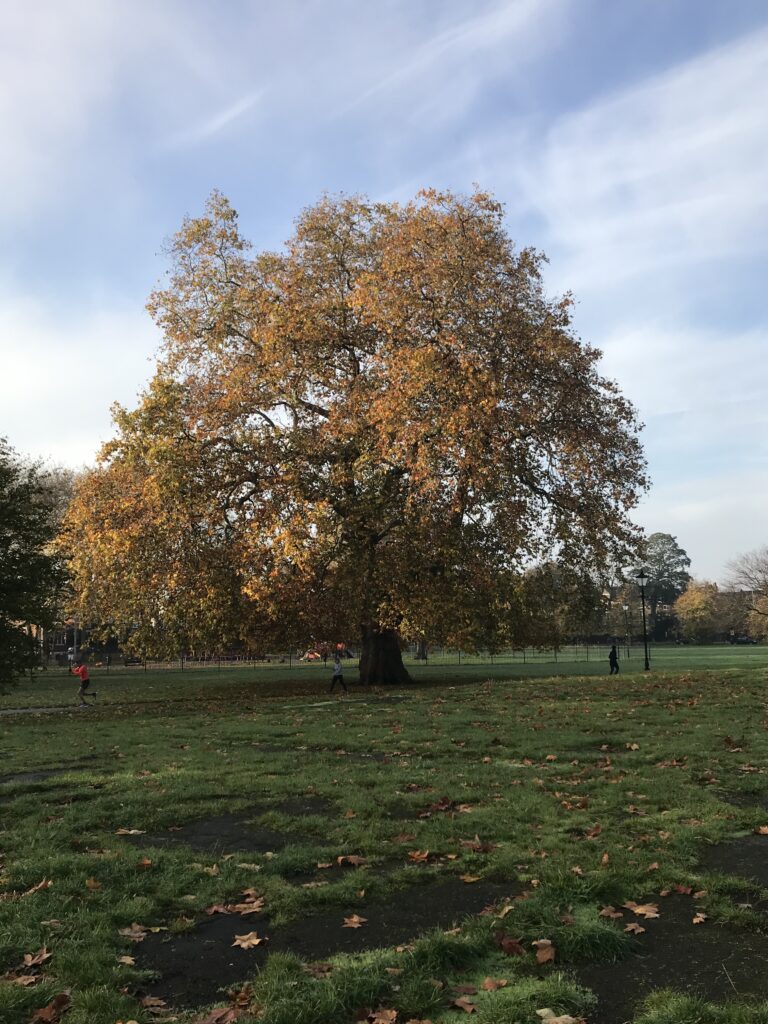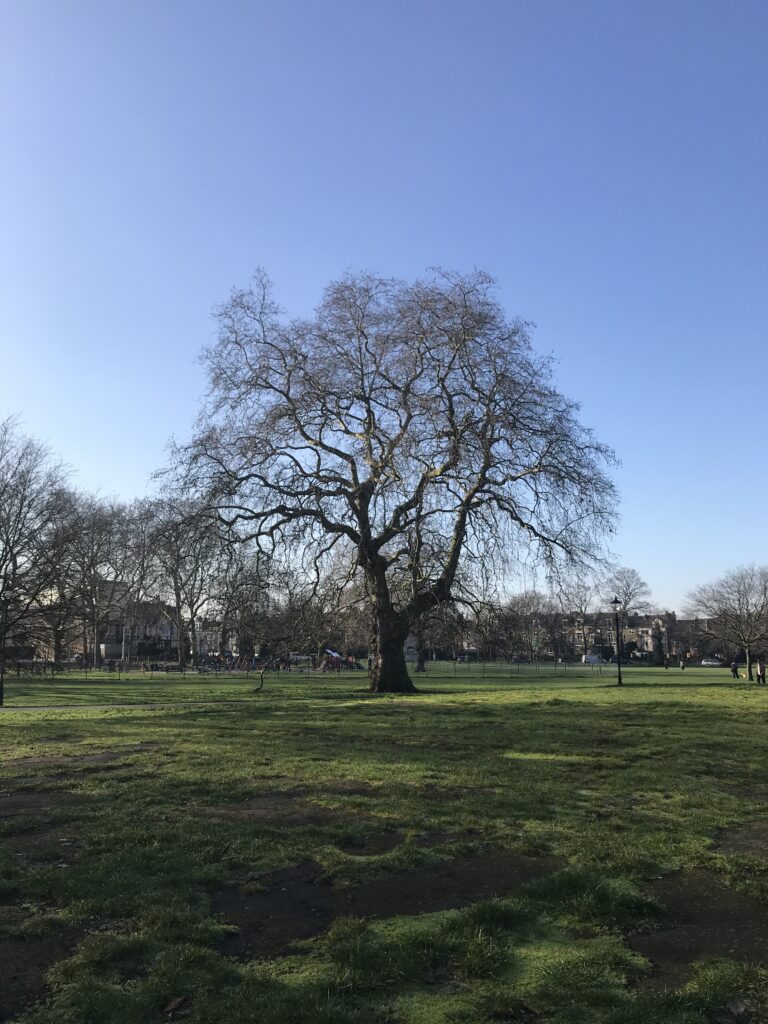
In Brunswick Gardens, a stone’s throw from the Coram foundation, is one of the ‘Great Trees of London‘, a huge, and 230 year old, London Plane.
It’s thought to be the second-oldest of its species in central London, planted in 1796 when the gardens were first laid out, beaten only (and only just), by a plane in Berkeley Square which dates from 1789.
(The very oldest, and very largest, in all of London is believed to be at Barn Elms and dates from 1685, which is from around the time that this variant Platanus x hispanica first emerges, a hybrid of the Oriental Plane and the Western Plane. It’s known as ‘Barnie’.)
This type of tree was extensively planted across the city in the 1800s as they seemed to be ideal for urban settings – they are tolerant of hot summers and cold winters, have attractive broad leaves and a canopy that provides shade. They also shed their bark (hence the ‘camouflage’ pattern on the trunks of many), an arboreal defence against insects and disease, but of use in cities as air pollutants are shed at the same time. The atmospheric coal dust of the Victorian era and the 20th century blackened London’s buildings, but the trees appeared to be self-cleaning.
They do, however, have two big drawbacks. That bark-shedding defence against potentially harmful bugs means that the trees provide little food for insect-eating birds, so are remarkably ‘sterile’. ornithologically speaking. The plane also has some brutal pollen for hayfever sufferers (I am unfortunately firmly in this group), making London’s parks a no-go area for a couple of weeks each spring when they’re at their worst. (It’s like gargling iron filings while someone sprays pepper in your eyes.)
But enough of this carping and negativity; here are some pics of my local favourite London plane, which guards the path across my bit of Clapham Common, and which lifts my spirits whenever I see it.




The Blue Crow map, ‘Great Trees of London‘ does what it says on the wrapper. And fans of nominative determinism will be keen on Paul Wood’s ‘London is a Forest‘.

